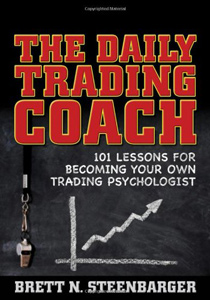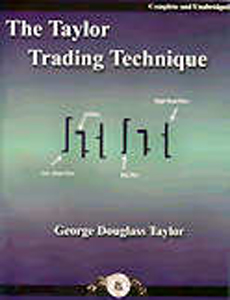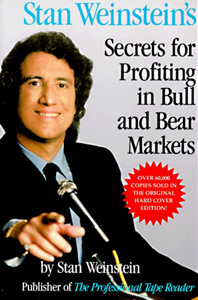Why Invest in Shares?

Further Reading
Shares are yet another vehicle by which you can invest your money. Like any investment, shares are not so much about making money for money’s sake as they are about helping you to realize your dreams, achieve your aspirations and secure your future. They could help you pay off your mortgage, enable you to take that long-awaited family holiday, ease the burden of retirement or help the kids secure their first home. Once shares start working for you the choice is yours.
Over the years, many Australians have relied on the family home to increase their wealth as its value has increased, and buying property will almost always be a sound investment. The realty boom comes and goes, seems to depend a lot on how high Australia’s Reserve Bank set interest rates and how often they raise those rates.
Both shares and residential investment property have produced, on average, returns of over 10 per cent per year for the last 20 years on average (2009? hmmm). So they are both good investments and it makes sense to have both if you can afford to. Other parallels between shares and property include:
- Both investment methods can produce an income. An investment property through rent and the majority of shares through dividends – which are simply part of the profit if the company you invested in prospers.
- Shares could be considered a long-term concern in much the same way you wouldn’t buy and sell a house over the six weeks or even six months. Five years is a reasonable time frame to work within when buying shares.
- Like an investment property shares give capital gains tax relief, with just 50 per cent of your capital gains taxed if you have the investment for more than one year.
- Like buying property, shares give you quite a bit of financial control as you can choose when and what to buy and when and what to sell.
Owning shares is becoming an increasingly popular investment proposition. According to a survey by Australian Stock Exchange Ltd (ASX), more than half the population of Australia now owns shares either directly or indirectly via a managed share fund.
One way that the sharemarket does differ from the property market is that the market for shares is very transparent. It is very simple to find out the current value of any share by looking in the newspaper or on the internet or on TV. But it is far more difficult to evaluate a property except on the day it is auctioned or sold.
Share Investing Strategies:
To help succeed in the sharemarket there are a number of tried and true strategies worth adapting to suit your income, goals and aspirations:
Think Long Term of your Share Investments
Look for companies that present good value and above-average profit growth. If you are choosing to invest over trading shares, always think long term. Don’t go looking for quick gains through active trading.
Diversify Your Share Investing
Depending on your investment goals and risk appetite, you would diversify your holdings. Fluctuations of individual stocks leave you exposed to certain risks if you put all your eggs in one basket. Invest in a few different company shares across different industries.
Think Liquidity
Market liquidity refers to shares that can be easily sold if you need cash at short notice. This is one of the advantages of the sharemarket over property. Most shares, especially the blue chip companies (those in the top 200 largest listed companies) are very liquid stocks because millions of their shares are traded each day.
Actively Monitor Your Share Investments
Shares need to be monitored. For most portfolios, all that is necessary is that you read the newspapers to track their rises and falls. However, more volatile shares, such as exploration companies, may need to be monitored by the hour. This can be done on the ASX website which updates prices every 20 minutes, where real-time share prices are available for all ASX listed companies.
- How to Trade Forex and Gold Options
- How to Trade the Gold Price and Profit!
- Forex Trading the EUR/USD Pair € EURO and $ US Dollar
- How to Trade Stock Market Indices S&P500
- How to Trade Crude Oil
- Forex Trading Psychology
- What Are Broker Recommendations?
- Free Tickets to Trading & Investing Seminar & Expo ($18) Brisbane 2013
- Stock Calc App
- All About Warrants
- Introduction to Exchange Traded Funds
- Introduction to Exchange Traded Funds: Features
- Introduction to Exchange Traded Funds: Domestic ETFs
- Introduction to Exchange Traded Funds: International ETFs
- Exchange Traded Commodities
- Australian Stock Scan
- Australian Online Share Trading
- List of Trading Books
- Interesting Thoughts about the Australian Dollar
- What's the Meaning of Hawkish?
- Do You Know How To Use the P/E Ratio
- Trading, Religion and Politics - Do They Have Anything in Common?
- Shares that are Volatile that Double and Half in the Short Term
- Telstra (TLS) T3
- Margin Call by E-mail
- The Cost of Holding a Position
- Lack of Disclosure: Compensation from ASX Listed Company
- Unrealistic Returns and Benchmarks
- CMC Markets Down
- Quality versus Quantity Forex Trading
- Woolworths 1H Sales $30.7bn up 3.2%
Date added 31-01-2013 - ASIC Fines CommBank's CommSec
Date added 25-09-2012 - Industry Super Network Calls to Ban High Frequency Trading (HFT)
Date added 22-09-2012 - NAB Launches Online Share Trading Platform
Date added 19-09-2012 - Reserve Bank of Australia Says 23 Countries Holding AUD
Date added 18-09-2012 - Australia Post Digital Mailbox
Date added 10-09-2012 - Winners and Losers of Trading for Week 2
Date added 16-01-2012 - 2012's First Week of the Best and Worst Traded Stocks
Date added 09-01-2012 - 2011's Last Best and Worst Traded Stocks
Date added 05-01-2012 - Best and Worst Pre-Christmas Traded Stocks
Date added 30-12-2011 - Trading Winners and Losers for Dec. 12-16
Date added 19-12-2011 - Best and Worst Traded Stocks for Dec. 5-9
Date added 13-12-2011 - Top 3 Best and Worst Traded Stocks
Date added 05-12-2011 - ASX Glitch Trading Halt
Date added 27-10-2011 - Worst Trade Stocks (and the Best)
Date added 06-08-2011
Top 150 Public Companies Listed on the Australian Stockmarket as at 29/05/2009
- BHP Billiton
- Westpac Banking Corporation (WBC)
- Commonwealth Bank of Australia (CBA)
- National Australia Bank (NAB)
- Telstra (TLS)
- ANZ
- News Corporation (NWS)
- Woolworths Limited(WOW)
- Woodside Petroleum Limited (WPL)
- Rio Tinto
- Westfield Group (WDC)
- Westfarmers Limited (WES)
- QBE Insurance
- CSL
- Newcrest Mining Limited (NCM)
- Origin Energy Limited (ORG)
- Santos Limited (STO)
- AMP Limited (AMP)
- Macquarie Group (MQG)
- Foster’s Group Limited (FGL)




